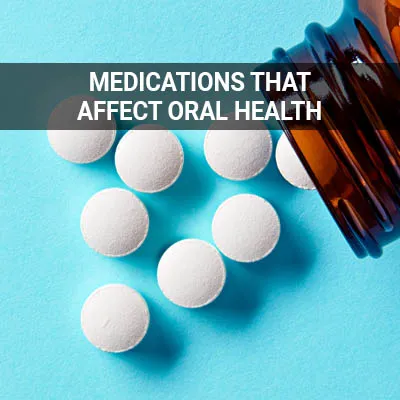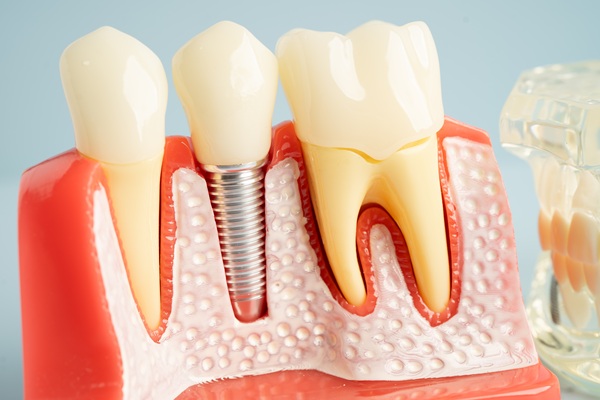Diseases Linked to Dental Health Brooklyn, NY
Complete health has revolutionized the way dentists and physicians care for their patients, addressing the link between oral and systemic health. The mouth is the leading entryway for bacteria to make their way through the body systems' various tracts. Complete health dentists view their patients as not just a mouth but a whole body, working to achieve overall wellness.
Many oral and systemic diseases coincide and simultaneously affect one another. Understanding the oral-systemic link and preventative treatments can greatly enhance your health and well-being. Complete health dentistry is available at Nostrand Dental in Brooklyn and the surrounding area. Our staff can help you better understand the oral-systemic health connection. Call us at (718) 513-9685 to schedule a consultation appointment today.
Habitual vs. Genetic Reasons for Oral Conditions
A number of oral health conditions stem from habit and behavior. The leading causes of many oral concerns are smoking, excessive alcohol consumption, poor nutrition, and inadequate brushing, flossing, and rinsing. Genetics also plays a role in oral health conditions, ranging from hereditary traits to behaviors during pregnancy.
How to Prevent These Issues
Minor dental concerns, such as cavities and caries, often stem from genes or women who had untreated cavities or caries during pregnancy. However, severe oral conditions, such as gum disease or oral cancer, are often combinations of genes and behavior and worsen through improper hygienic habits. It is possible to diagnose the majority of oral conditions at a young age through preventative treatments that combat disease and decay at the root. The most crucial step in preventing oral and systemic health concerns is a good oral hygiene routine.
Healthy Living and Wellness Plans
A part of living a healthy, balanced life is diet, nutrition, exercise, and hygiene. A good oral hygiene routine entails proper brushing twice a day, flossing and rinsing daily, consistent six-month dental checkups and cleanings, replacing toothbrushes every three months, and avoiding sugary foods and beverages.
A wellness plan is a program designed to improve health and fitness, usually offered by employers and insurance companies. A wellness plan encompasses all health concerns (mental, physical, and emotional) for full-body wellness. They incorporate oral health, general health, and mental health concerns into a systemic chain that combats conditions simultaneously.
“A part of living a healthy, balanced life is diet, nutrition, exercise, and hygiene.”
Heart Conditions
Heart Disease
Poor oral health increases the risk of bacteria and infection entering the bloodstream, particularly affecting patients with artificial heart valves. The Mayo Clinic found that "heart disease, clogged arteries, and stroke might be linked to the inflammation and infections that oral bacteria can cause." Periodontal disease, a severe form of gum disease, is associated with an increased risk of developing a heart condition.
Endocarditis
Endocarditis is an infection in the inner lining of the heart chambers caused by bacteria in the bloodstream. Bacteria, fungi, infections, and viruses attach to certain parts of the heart and clog the heart chambers or valves (endocardium). Going without treatment can lead to various health complications and fatal risks.
“Gum disease, and its severe form periodontal disease, is associated with an increased risk of developing a heart condition.”
The Gut and Immune Systems
Gut Health
The gastrointestinal system is primarily affected by oral health despite having a greater bacterial density than the oral cavity. The Journal of Oral Microbiology study concluded that "severe diseases and genetic susceptibility of the host may promote ectopic colonization of oral bacteria." The intestinal tract is a leading pathway for microbes and bacteria to enter the gut and many other body systems. Good oral hygiene, periodontal therapy, prebiotics, and probiotics may reduce oral bacteria in gastrointestinal disorders.
Immunodeficiencies
Immunodeficiencies refer to over three-hundred diseases that affect the body's defense or immune systems, such as HIV/AIDS and Down syndrome. Many of these diseases are primarily genetic, but malnutrition and poor oral hygiene play a major role. The National Institutes of Health found that "bacterial plaque related periodontal diseases seem particularly sensitive to primary deficiencies in the innate immune system." Since an immunodeficient patient's body defenses are weak, the immune system has difficulty fighting infections and bacteria that enter through the mouth.
“Many of these diseases are primarily genetic, but malnutrition and poor oral hygiene play a major role.”
Check out what others are saying about our dental services on Yelp: Diseases Linked to Dental Health in Brooklyn, NY
Effects During Pregnancy
Premature Birth
As bacteria enter the body through the oral cavity, various tracts lead to the womb and affect the fetus. According to the Matern Child Health Journal, "Untreated dental disease can lead to infection and inflammation, which have been implicated as significant contributors to preterm birth." In essence, the fetus does attain an inflammatory response to maternal oral infection.
Low Birth Weight
Women who have periodontal disease have also been linked to higher rates of premature birth and low birth weight. Good oral hygiene and care before and during pregnancy have shown a significantly lower number of low birth weight babies. In an article on preventative medicine, researchers found that pregnant women who brushed their teeth thoroughly thirteen or more times a week had normal birth weight outcomes and preterm birth (37 completed weeks of gestation).
“Good oral hygiene and care before and during pregnancy have shown a significantly lower number of low birth weight babies.”
Questions Answered on This Page
Q. Are oral conditions primarily habitual or genetic?
Q. How does poor oral health affect the heart?
Q. How does oral health affect the gut and immune system?
Q. What can complete health dentistry do to promote my health?
People Also Ask
Q. Am I at high risk for developing oral cancer?
Q. What are the signs of gum disease?
Q. What are the health risks of gum disease?
How General Dentistry Can Help
By understanding the oral-systemic link, patients can better understand how to take care of their health. Choosing a skilled general dentist can also help them recognize signs of and prevent chronic diseases before they have the chance to occur. At Nostrand Dental, we understand that early intervention is key.
We also know that no two patients are the same and that everyone requires a different treatment plan. We assess each of our patient's individual risk factors to create a unique recovery plan custom-made to meet their needs. Through a comprehensive approach, we can reduce our patients' risk for heart disease, promote overall prenatal health, and prevent aggravating any other preexisting conditions.
“By understanding the oral-systemic link, patients can better understand how to take care of their health.”
Frequently Asked Questions About Diseases Linked to Dental Health
Q. Why is patient education important?
A. We believe that doctor-patient relationships should be collaborative, meaning the patient takes an active part in their own care. Many patients do not have a basic understanding of their conditions and how they affect them, leaving them to feel alone and helpless. Patient education can empower them to make informed decisions about their choices.
Q. Is there a link between chronic inflammation and periodontal disease?
A. Yes. Chronic gum inflammation is one of the top causes of periodontal diseases. When periodontal disease occurs, it creates pockets between the gums and teeth and fills them with bacteria, plaque, and tartar. If left untreated, these pockets become deeper over time, leading the inflammation to spread to other parts of the body.
Q. How does smoking factor into the oral-systemic connection?
A. Tobacco products affect the oral cavity just as they affect all other systems of the body. It allows numerous chemicals to enter the body and also allows bacteria to flow through several other bodily systems. Additionally, it limits saliva flow, which causes bacteria to stick to the teeth and gums. This may lead to plaque and infections.
Q. How does a general dentist check for signs of systemic disease?
A. Many systemic diseases can cause tooth decay and tooth loss. Many are also linked to periodontal disease, which is associated with harmful bacteria linked to various conditions. We can also conduct oral cancer screenings to catch the disease in its early stages.
Q. What is the healthy mouth baseline and what is its role in complete health dentistry?
A. The healthy mouth baseline is what the mouth should look like when it is in ideal health. We will go over this baseline with you during your initial consultation and compare and contrast it to your own mouth. Then, our team will devise a treatment plan custom-made to your unique needs.
Dental Terminology
Learn More Today
If you are interested in better understanding complete health dentistry, call us at 718-513-9685 to set up an appointment.
Helpful Related Links
- American Dental Association (ADA). Glossary of Dental Clinical Terms. 2024
About our business, license, and website security
- Nostrand Dental was established in 1998.
- We accept the following payment methods: Cash, CareCredit, Check, Discover, MasterCard, and Visa
- We serve patients from the following counties: Kings County, New York County, Richmond County, Queens County, and Nassau County
- We serve patients from the following cities: Brooklyn, Manhattan, Queens, Staten Island, and Long Island
- NY (License #46702). View License Information and Specifics
- National Provider Identifier Database (1457434540). View NPI Registry Information
- Norton Safe Web. View Details
- Trend Micro Site Safety Center. View Details
Back to top of Diseases Linked to Dental Health










